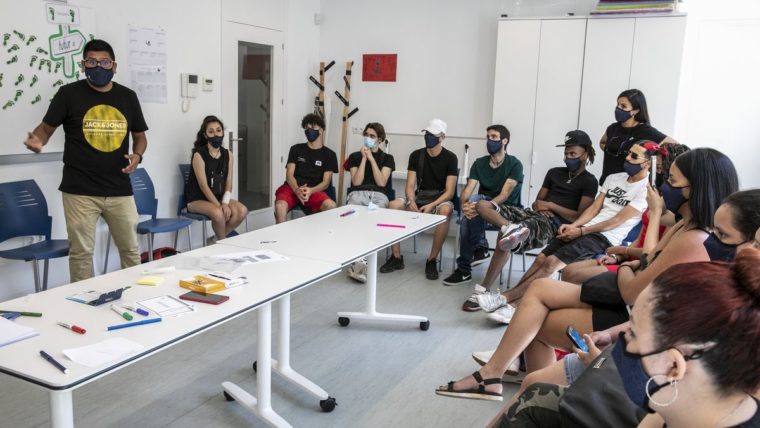City high schools meet to redefine the future of vocational education
Over a hundred figures from the city’s main schools met to establish key strategy areas for the city with a vision of the present and the future.
As the new school year and previous years have shown, vocational education is a consolidated training option which more and more students are choosing. Consequently, an ongoing review is needed to assess where this type of education is and where it is heading in the short, medium and long term. This was the context for the meeting between the heads of thirty schools in the city, held at the Fabra i Coats in Sant Andreu at the beginning of October and organised by the Barcelona Education Consortium.
The meeting was used to share and define strategy areas, as well as the suitability of establishing networks for professional sectors and creating a range of options to match students’ capacity for skills-acquisition. The session was attended by 123 professionals from 26 training centres and 4 artistic education centres as part of the meeting ‘Vocational training. Sketching the future’, an initial working session on the main challenges to the sector, outlined and developed from a city perspective and with a vision of the present and the future.
The session was also used to start making progress on the creation of a new master plan on post-compulsory education and to review methodologies, all in line with parameters on excellence and specialisation. Networking will focus on professional spheres such as the digital realm, sports, food, business and bio-healthcare, also open to and requiring essential input from the university and business worlds. In turn, this approach will facilitate the optimisation of resources and infrastructures, as well as shared knowledge.
According to the new law on vocational education there is currently a broad array of options for courses and cycles in this field in terms of their nature and duration, ranging from micro courses (30 to 50 hours) to training cycles (2,000 hours), specialist courses (600 to 800 hours), professional certificates (300 to 600 hours) and skills units (50 to 100 hours).


Related news
-
 Education and studies
Education and studies
-
 Childhood
Childhood



